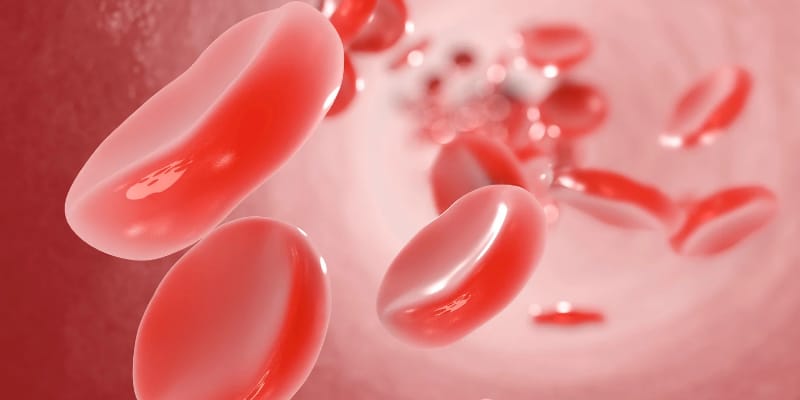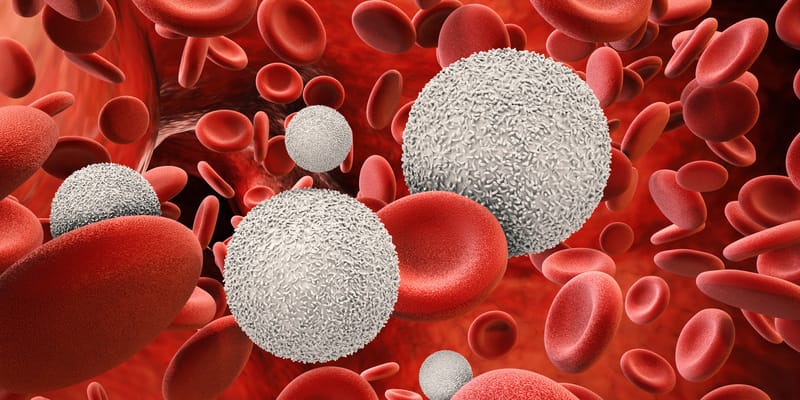The importance of white blood cells and their normal levels
Oct 19, 2023 By Madison Evans
The white blood cells also known as leukocytes are an essential part of the body. It is generated by the stem cells present in our bone marrow. The bone marrow consists of 80 to 90% of white blood cells. The main function of the white blood cells is to fight against the diseases that come into the body.
The white blood cells revolve around the human body in the blood and when the body encounters an injury it takes the responsibility to fight off any infections and diseases to prevent the body. They help the body fight against diseases by producing antibodies to kill any harmful agent including the cancerous cells.

Types Of White Blood Cells
Granulocytes
White blood cells called granulocytes have tiny granules that carry proteins. There are further three types of granulocytes:
Basophils
Basophils are not present abundantly in the body. They help to fight the allergic reactions that happen in the body.
Eosinophils
These granulocytes fight against the parasites that come into our body to destroy it. They kill parasites by releasing toxic substances.
Neutrophils
They are present in large numbers in our bodies and are responsible for fighting against any harmful bacteria and fungi. They kill bacteria by a process called phagocytosis
Lymphocytes
Lymphocyted gives the human body long-term immunity. There are two types of lymphocytes. B cells are the proteins that bind with pathogens like bacteria and viruses and neutralize them and the T cells identify and remove infection-causing cells from the human body.
Monocytes
Monocytes are present in almost 2 to 8% of the human body and help to fight chronic diseases. They differentiate between macrophages and dendritic cells.
The Importance Of White Blood Cells
Immune Function
The white blood cells protect our body against diseases that can be in any form either bacteria or a parasite. They are the defenders of our bodies that identify, target, and eliminate harmful substances from our bodies.
Wound Healing
The white blood cells also help in the repairing and healing process of the body. In the form of any injury, the white blood cells eliminate the dead and damaged cells and tissues and replace them with new cells and tissues.
Diagnostic Tool
White blood cells also serve as the diagnostic tool for the body. When a body catches any disease there is a sudden change in the number of white blood cells that sometimes become very helpful for us to identify if a person has any disease or not. Simply the blood reports of a person are checked and if he/she has fewer white blood cells then the person is surely suffering from a disease.
Normal levels of white blood cells
The normal levels of white blood cells vary from one person to the other depending upon the age and other factors.
For example, a newborn infant has white blood cells from 13,000 to 38,000 and a newborn has white blood cells from 5,000 to 20,000, whereas the adult has 4,500 to 11,000 white blood cells normally but if we talk about a pregnant woman, her normal white blood cells level will be 5,800 to 13,200 per cubic millimeter.
This depends on the age factor and other conditions on how much a person should contain white blood cells in his blood.

How to determine white blood cell level
There is a complete process by which you can have the best result of white blood cell level in your body.:
- Firstly a blood test is taken from your vein or fingertip and checked to get your complete blood report.
- Secondly, the sample is sent to the laboratory for testing where it is checked by special instruments to give accurate results.
- Lastly, the results of the blood sample come with the white blood cells mentioned in it with respect to the microliter (μL) of blood.
High white blood cell level
If a person has a high amount of white blood cells in his body, the condition is known as leukocytosis. It can happen due to many reasons:
- Infection: The most common cause of the increase in white blood cells is infections that can be bacterial, fungal, or viral.
- Inflammatory Conditions: Inflammatory conditions such as rheumatoid arthritis also cause an increased level of white blood cells in the body.
- Stress and Exercise: Stress and exercise also temporarily increase the white blood cells ratio in the body.
- Medications: Some medications like corticosteroids also increase the white blood cell level in blood.
Low white blood cell level
If a person has a high amount of white blood cells in his body, the condition is known as leukopenia. It can happen due to many reasons:
- Bone Marrow Disorders: Conditions like aplastic anemia, and myelodysplastic syndromes cause bone marrow disorders that result in the low level of white blood cells.
- Chemotherapy and Radiation Therapy: Cancer treatments like chemotherapy and radiation therapy damage the bone marrow that affects the white blood cells.
- Nutritional Deficiencies: A deficiency in essential nutrients like vitamin B12 also causes a decrease in white blood cell levels.
- Inherited Disorders: Inherited diseases like Kostmann syndrome or cyclic neutropenia also cause a great level reduction in white blood cells level.
Conclusion:
The white blood cells are the major part of our immune system that protects our body from many bacterial, viral, and fungal diseases. There are three types of white blood cells, granulocytes, Lymphocytes, and monocytes. The normal level of white blood cells is different for every person depending upon the age and we can identify ours by doing a blood sample test.
If the white blood cell level is high then it can be due to many reasons like infection, medication, and stress and if it is low then it may be due to bone marrow disorders, inherited diseases, and nutritional deficiencies.







